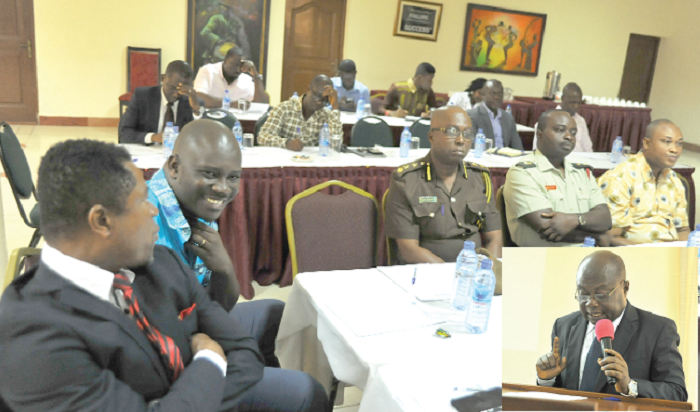
Legislation on acquisition, use of toxic chemicals in the offing
A draft legislation that will help regulate the acquisition and use of toxic chemicals in the country, in line with the requirement of the Chemical Weapons Convention (CWC), is in the offing.
Advertisement
Currently, the Attorney-General’s Department has finalised work on the draft legislation and will soon hand it over to the Ministry of Environment, Science, Technology and Innovation (MESTI) for due processes to be followed for Cabinet approval, the Coordinator of the CWC, Mr Kwamena Essilfie Quaison, has stated.
According to him, the absence of legislation on the CWC had been the major setback to enforcing regulations that would build a robust chemical weapons regime in the country.
“As a country, we have had to fall on other regulations, including the legislation on the use of hazardous chemicals and the one on pesticides. But we cannot apply punitive measures on people who fail to comply because there is no legislation.
“Now that there is a draft, we hope that there will be a political buy-in, as well as support from all stakeholders, to take it to the next level,” he said.
Event
Mr Quaison stated this at a two-day national workshop on assistance, prevention and building the country’s emergency response capacity to chemical weapons.
Resource persons included experts from the Organisation for the Prohibition of Chemical Weapons (OPCW).
Participants were drawn from the security agencies, ministries, departments and agencies (MDAs) and other stakeholders.
CWC
Article 10 of the CWC makes provision for assistance, protection and preparedness against the use of chemical weapons.
The convention enjoins states to build their capacity to be able to respond to attacks involving toxic chemicals through efficient emergency response mechanisms.
Ghana became a state party to the CWC in 1997, with the MESTI as the national authority in charge of implementing the requirements of the convention.
However, the country has not been able to meet the conditions on prohibiting the development, production and use of chemical weapons.
For instance, Mr Quaison observed that some pharmaceutical and cosmetic products contained chemicals that were not so harmful but could serve as precursors for toxic chemicals.
“As a state party to the CWC, there is the need for us to be responsible by putting measures in place to regulate and control the use of chemicals.
“An efficient implementation of the CWC through putting in place the right national legislation will help us to be able to track the movement of chemicals in and out of the country,” he stressed.
Collaboration
The Director of Finance at the MESTI, Mr Alexander Kwaning, underscored the need for concerted efforts among stakeholders to regulate the use of chemicals in the country.
He said the threat by some countries to launch chemical weapons was worrying.
The Project Officer of the OPCW, Mr Oscar E. Meless, called on countries in the sub-region to seek technical support and also adhere to best practices to make their countries resilient in chemical weapon impact.



